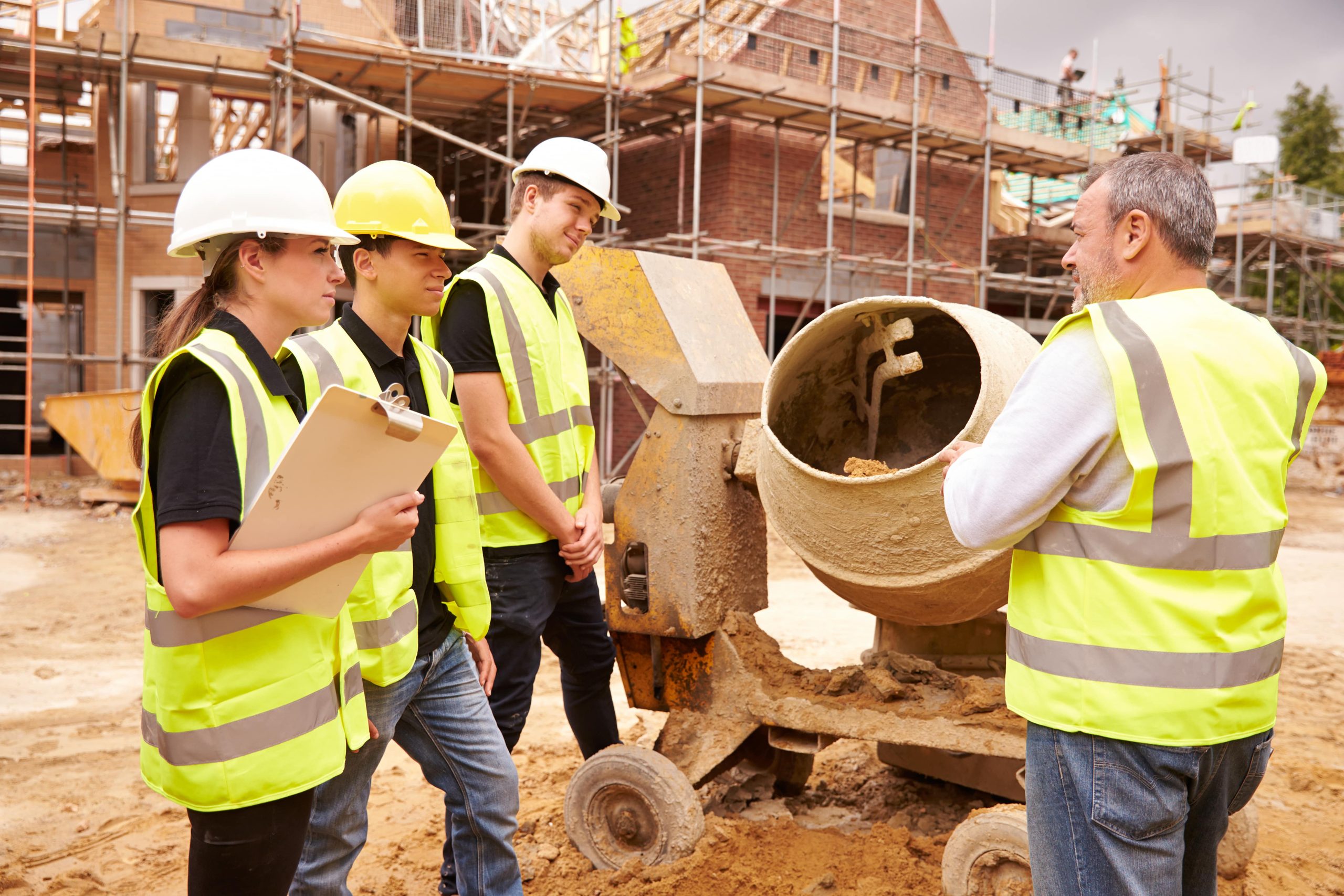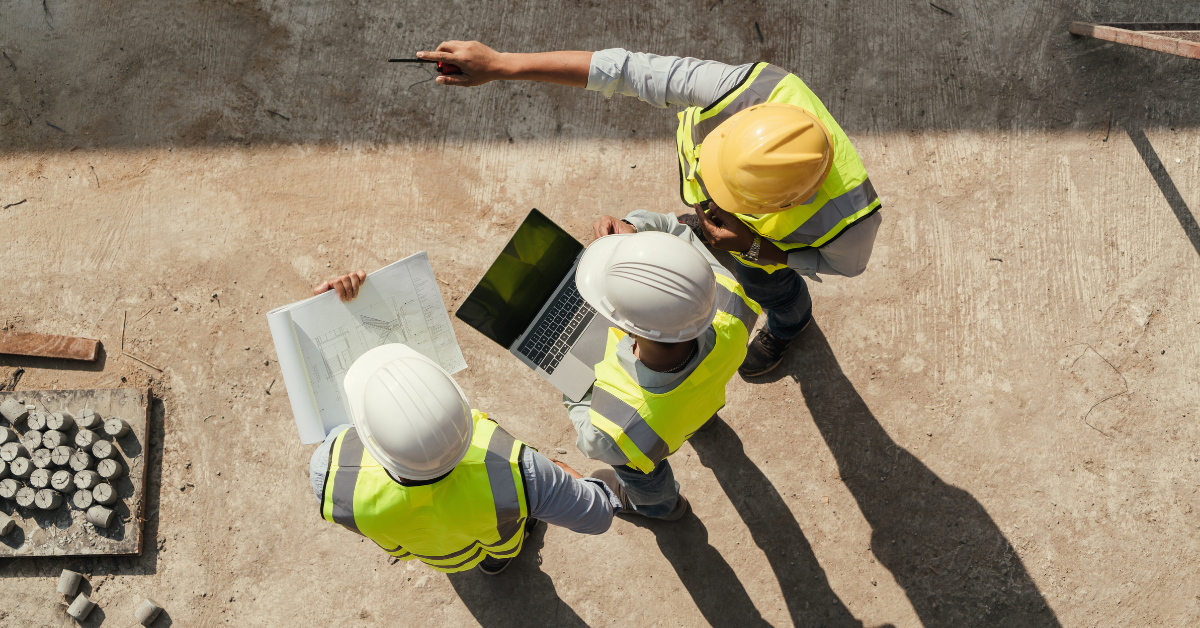Working together as a team is necessary for all aspects of life! However, as you might expect, it is highly critical in construction.
One of the essential criteria in determining whether or not a project is a success is how the project manager interacts with his team.
The synergistic effect of teamwork can help participants complete a project faster and more effectively. Construction teams must work well together regardless of the size of the project.
Architects, engineers, construction companies, and investors contribute to any construction project’s success! However, while everyone on this team is working towards a common objective of completing the project, their methods and priorities may differ significantly, leading to disagreements that might impede or even halt progress.
Here’s a list of suggestions for enhancing teamwork on your construction site to assist you in getting your project back on track and your site more productive!
1. Combine Diverse Personalities and Abilities
If you can communicate effectively, have a positive attitude, or have strong hands-on skills and technical abilities, you can contribute to your team’s success. Individuals with the correct personalities and technical skills must be combined to form an effective team. Rather than a collection of people with similar skills, all trying to have the same input will allow the team to establish a naturally balanced state.
2. Organize Team-building Events
Gaining the respect and confidence of one’s coworkers is essential to the success of any team. When people have faith in one another, they are more inclined to value one another’s ideas and contributions to the project. If you want to bring your team closer together, a corporate day or team-building day can be an excellent way. The informal nature of these events allows your employees to get to know one another more casually, which will help foster relationships and improve your team’s ability to work cohesively.
3. Set Team Objectives and Goals
To get your team to see the project as a whole rather than just their efforts, you should set a goal or aim for them to achieve. While their priorities may be valid, your team will be more motivated to work on other aspects of the project, and the project will go forwards more quickly and smoothly as a result of your efforts in this direction. Achievable and quantifiable goals are the best way to ensure they are established.
4. Take Advantage of and Fulfill Your Potential as a Leader
Everyone on a team should take responsibility for their job and know their role in the project at hand when working together. Giving the team a sense of ownership will lift their spirits and give them a sense of purpose in the project, motivating them to do their best work.
It’s also a good idea to designate a team leader. Additionally, the designated leader will have an excellent way of displaying their leadership abilities while you’re away from the project, allowing them to feel appreciated and in control of the project even when you aren’t present.
5. Teach Your Team Members to Value Other People’s Opinions
As long as you track your staff and ensure they are dealing with conflict correctly, disputes can occasionally contribute to beneficial progress in a project. Keep your employees aware of how to listen and communicate effectively when dealing with opposing interests so that they are aware that while others may have different perspectives to them, they must respect those opinions as well.
6. Risk Management
Delegating tasks and duties entails some risk, and team members must figure out how to mitigate that risk. Injury on the working site or a lack of enough workers can delay and increase the cost of a costly project.
7. Make Something Out of Your Work
Additionally, working in a team should be enjoyable and motivating rather than a burdensome job! Having a little fun and laughing together dramatically benefits the entire group.
It’s not just about blending business with humor; having fun is essential since it introduces humor to the workplace and helps teams work together more effectively.
Great Benefits of Teamwork in the Construction Industry
Working as a team in the construction industry entails bringing together a diverse collection of people with various skill sets and experiences to reach a common goal.
To name just a few, this group could comprise, among others, architects, engineers, designers, laborers, and even owners and investors. Success is guaranteed when these folks get together and focus on the same thing!
1. Enhances the Standard of the Work Produced
Any project can benefit from the participation of experts and people from various backgrounds. Conflicts in the workplace are inescapable, but the advantages of having more than one perspective far exceed the disadvantages.
The position in the company doesn’t matter; everyone adds something unique to the table. Construction workers work together in the same manner as athletes in the sports of basketball and football do to achieve a common goal.
2. It Saves Money and Time by Maximizing the Use of Resources
Team members in the construction business must use resources in the most effective manner possible. When working as a team, resources like time, money, and construction supplies are put to good use.
3. Boosts Creativity and Innovation
When it comes to making decisions, working as a team has proven to be beneficial. As a result, the optimal option can be made with the support of diverse perspectives. It is demonstrated by the ability of teams with structured operations to create profitable enterprises and better ideas.
4. It Makes People More Responsible for Their Actions
Working in a group instills a greater sense of personal accountability and duty in its members. It is made possible by the division of labor among the team members. Everyone engaged may feel burdened by the concept of accountability. However, as long as the assignment is formally given to the team, no one feels compelled to go against what they have been told.
Teamwork is essential in any project-based endeavor, such as in the construction business. As demonstrated by several studies, project success is a direct result of a well-coordinated team effort.














